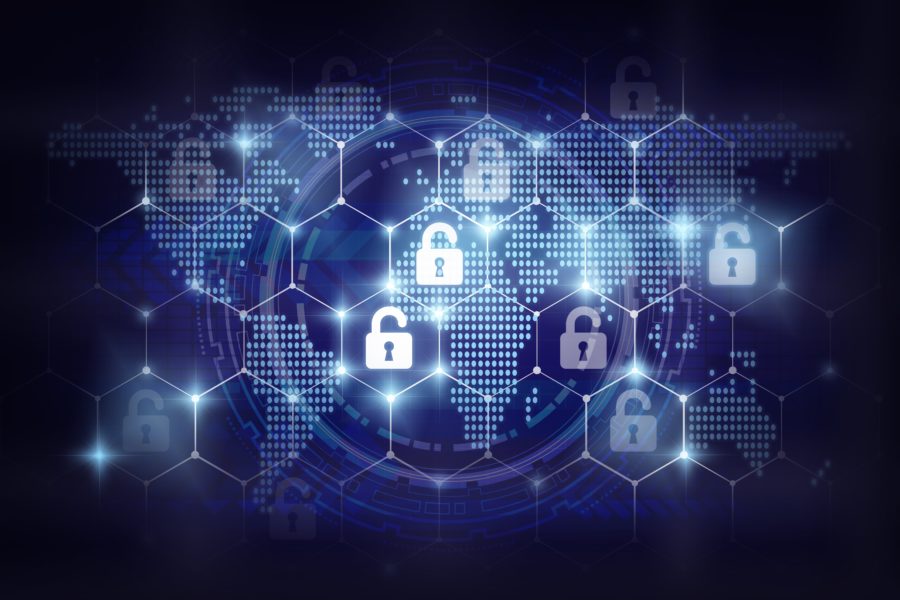replaced antivirus software in the news, and barely a day goes by without a mention of a significant company somewhere in the world suffering a cyberattack.
Whether you’re responsible for internal or external comms, or a combination of both, it’s a topic that cannot be ignored. Indeed, fostering an understanding and education on the subject can benefit employees, clients, potential customers, and every other stakeholder involved with the business.
With that in mind, we’ve brought together the main reasons to make cybersecurity a focal point of your comms plan, no matter the target audience.
1. Avoid the Inherent Weaknesses of Remote Work
Management and employees alike may have vastly different opinions on remote work. Without going too much into the differences in communications and leadership, we’ll focus instead on the security aspects.
In many cases, employees will turn to their personal hardware to get the job done. Remote work doesn’t automatically mean working from home, and they could be at a hot desk, in a café, or just about anywhere that allows them to focus. That often means using a public wi-fi network.
A stunning 95% of cybersecurity issues come down to human error. Yet, simultaneously, it’s difficult to blame someone that didn’t know they were meant to do something in the first place.
If your comms plan is responsible for keeping employees updated on business-critical information, few things are more important than keeping your data and systems secure. Encourage the use of strong passwords and instruct employees to use a VPN across insecure communication lines.
2. Provide Context to All Stakeholders
Whether your business already has a cybersecurity strategy in place or is in the process of developing one, it makes sense to keep people in the loop. The potency of online threats grows daily, and coming up with a way to communicate your response to everyone that needs to know is one of the best ways to remain protected.
Ultimately, securing a business can result in sweeping changes. Some employees may wonder about the switch to different software and networking if that forms part of the plan. Senior management may be curious why some sensitive data is available only to certain people.
As is often the case, regular, transparent communication can ease the process and ensure everyone is happy with developments as they happen.
3. Demonstrate to Customers You Value Their Data
It goes without saying that reputation matters in any consumer-facing business. This consideration extends to cybersecurity as well.
75% of consumers choose to no longer purchase from or even engage with brands that suffer a security breach. In addition, almost half opt never to share any of their personal data with such brands again.
No matter how large or small your business, those are the kinds of numbers that are difficult to ignore.
Most sectors are still in the phase whereby consumers don’t think too much about anything beyond their own cybersecurity. For example, most won’t look up a brand’s cybersecurity policy before making a purchasing decision.
However, that day will likely come. There is nothing wrong with being ahead of the industry by demonstrating a commitment to protecting their personal information before being asked.
That doesn’t necessarily mean trying to create a successful PR campaign based solely on your cybersecurity efforts. Something as simple as revisiting your corporate privacy policy or creating a dedicated area on your website to showcase your security efforts can work wonders.
Then, as data breaches become even more of a pressing issue, the brands with which you work are well-positioned to capitalize on their outstanding reputations.
4. Assure Suppliers You’re Not the Weak Link in the Supply Chain
The hot topic of cybersecurity has been around for a while. Malware and ransomware have entered everyday vernacular at businesses around the world. As a result, most have taken steps to ensure they are shielded from attacks and have plans in place should the worst happen.
However, most businesses can only control security elements over which they have direct control. As a result, suppliers can compromise even the best thought-out strategies given the need for information sharing and potentially systems access.
A time may come in the near future when businesses carry out “security checks” on suppliers in the same way they might conduct credit checks today. If the risks of doing business prove too high, or a potential supplier has suffered breaches in the past and done little to rectify them, potential partners may become more selective.
By adding a steady stream of security concerns and improvements into a comms strategy, especially B2B communications, a business can potentially not only reassure its supplier base but increase it. Other companies may want to piggyback on the success of a potential partner as the importance of cybersecurity grows. Transparency around a strategy could easily land a business with preferred supplier status.
At a time when almost everyone knows what cybersecurity is and the vast majority understand the consequences, there has never been a better time to communicate what a brand does to mitigate risk. It’s more content for the brands in question, and making a point of sharing efforts can bring more than just reassurance – it can vastly increase the reach and viability of any given business.
